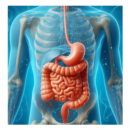The right strain of probiotics holds the key for better health, a stronger immune system and for the treatment of digestive issues, mental health illness and neurological disorders. Research continues to prove that probiotics benefits go far beyond what we previously thought.
Probiotics Benefits Begin in the Gut
The first and most overlooked reason that our digestive tracts are critical to our health is because 80 percent of your entire immune system is located in your digestive tract!
In addition to the impact on our immune systems, our digestive systems are the second largest part of our neurological system. It’s called the enteric nervous system and is located in the gut. We have heard the saying the Gut-Brain connection. We know that when our digestive system is not functioning well neither is our brain. This is why it’s called our second brain.
Many people with health issues, such as thyroid imbalances, chronic fatigue syndrome, joint pain, psoriasis, autism and many other conditions don’t realize that these illnesses originate in the gut.
On top of that 60 million to 70 million Americans are affected by digestive diseases. If you have taken antibiotics, had surgery, or a recent colonoscopy you definitely need to follow up with probiotics to help rebuild healthy gut flora to help protect your immune system and support your digestive system.
Some of the Beneficial Probiotic Strains
- Bifidobacterium bifidum — the most dominant probiotic in infants and in the large intestine, supports production of vitamins in gut, inhibits harmful bacteria, supports immune system response and prevents diarrhea. (6)
- Bifidobacterium longum — supports liver function, reduces inflammation, removes lead and heavy metals. (7)
- Bifidobacterium breve — helps colonize healthy gut community and crowd out bad bacteria. (8)
- Bifidobacterium infantis — alleviates IBS symptoms, diarrhea and constipation. (9)
- Lactobacillus casei — supports immunity, inhibits h. pylori and helps fight infections. (10)
- Lactobacillus acidophilus — relieves gas, bloating, improves lactose intolerance. Shown to help with a 61 percent reduction in E. coli, lower cholesterol levels and creation of vitamin K. (11) Also, important in GALT immune strength.
- Lactobacillus bulgaricus — a powerful probiotic strain that has been shown to fight harmful bacteria that invades your digestive system and is stable enough to withstand the acidic digestive juices of the stomach. It also neutralizes toxins and naturally produces its own antibiotics.
- Lactobacillus brevis — shown to survive the GI tract, boost cellular immunity, enhanced natural T-killer cells and kill h. pylori bacteria. (12)
- Lactobacillus rhamnosus — supports bacterial balance and supports healthy skin, helps fight urinary tract infections, respiratory infections, and reduce anxiety by reducing stress hormones and GABA neurotransmitter receptors. (13) Also, survives GI tract.
- Bacillus subtilis — an endospore probiotic that’s heat-resistant. Elicits a potent immune response and supports GALT. (14, 15) Suppresses growth of bad bacteria like salmonella and other pathogens.
- Bacillus coagulans — an endospore probiotic that’s heat-resistant and improves nutrient absorption. Also has been shown to reduce inflammation and symptoms of arthritis. (16)
- Saccharomyces boulardii — a yeast probiotic strain that restores natural flora in the large and small intestine and improves intestinal cell growth. It’s proved effective in treating inflammatory bowel disease like Crohn’s disease. (17) It’s been shown to have anti-toxin effects, be antimicrobial and reduce inflammation. (18, 19)
5 things you want to consider when buying probiotics
- Brand quality — Look for brands that are reputable like some of the Doctor Recommended brands we carry which include Metagenics which carries 10 different formulas including one for babies and kids (you can order from our online store) Standard Process, Apex Energetics and Biotics.
- High CFU count — Purchase a probiotic brand that has a higher number of probiotics, from 15 billion to 100 billion.
- Strain diversity — Search for a probiotic supplement that has different strains.
- Survivability — Look for strains like bacillus coagulans, saccharomyces boulardii, bacillus subtilis, lactobacillus rhamnosus, and other cultures or formulas that ensure probiotics make it to the gut and are able to colonize.
- Research — Do your homework. If you have questions please contact us. We are pleased to be able to help support you.
Have a healthy week. FYI we will be conducting our end summer P21 purification program beginning September 8th.
Dr Pia











